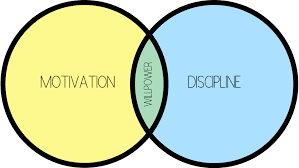10 Strategies for Developing Self-Control
Curated from: psychologytoday.com
Ideas, facts & insights covering these topics:
12 ideas
·6.09K reads
38
Explore the World's Best Ideas
Join today and uncover 100+ curated journeys from 50+ topics. Unlock access to our mobile app with extensive features.
10 Strategies for Developing Self-Control
Self-control strategies are key drivers of behavior change.
What Is Self-Control?
Good intentions are not enough. Sticking to one’s plan is hard work. We humans are notoriously poor at following through with our plans. We tend to be ambivalent about making a change. We want to lose weight, but we also love to eat. Fortunately, people can resist desire and temptation using the following resistance strategies.
72
863 reads
1. A Can-Do Attitude
Viewing ourselves as free and responsible for our actions is the foundation for self-discipline. Evidence shows that people function better and are more able to deal with stress when they feel that they are in control. Believe that things are beyond your control and they probably will be.
79
807 reads
2. Goal Setting
One has to have a goal. Goals basically guide our choices. The more specific the goal, the better able people are to reach it. A highly abstract goal may not be actionable. For example, instead of pursuing the goal of “being healthy,” a person may adopt the goal of “walking at least 30 minutes every day,” which is more concrete and easier to monitor. Effective goal pursuits follow the SMART criteria: Specific, Measurable, Attainable, Realistic, and Time-based.
88
604 reads
3. Self–Monitor
Self-monitoring is a form of feedback. Monitoring progress toward goal attainment helps one to concentrate on goal-relevant activities. Successful dieters count calories and otherwise carefully monitor their food intake, and that the stopping of monitoring often undermines dietary efforts. Self-monitoring helps us to become experts on our behaviors. By doing so, it will make habits much less difficult to change.
74
561 reads
4. Motivation
The more you want the goal, the more likely you are willing to make the efforts and sacrifices required to achieve it. The strength of people’s commitment to something depends on its value to them and the chance that the value will, in fact, occur. The relationship between these two factors is multiplicative. This means that there will be no motivation to pursue the goal if the value of the goal is zero, no matter how high the likelihood of success. Similarly, there will be no motivation if the expected chance is quite low.
74
437 reads
5. Confidence
An important component of motivation is the person’s self-perceived ability to achieve it. People won’t build up much motivation for change if they believe it is impossible for them. In the face of difficulties, people with weak self-confidence easily develop doubts about their ability to accomplish the task at hand, whereas those with strong beliefs are more likely to continue their efforts to master a task when difficulties arise.
73
422 reads
6. Willpower
Willpower represents strength or psychological energy that one uses to resist other temptations in order to work toward one’s goal. Self-control depends on a limited resource that operates like strength or energy. People consume this resource when they exert self-control. Thus, having only one goal makes self-control more successful than when people have two or more conflicting goals. As Plato’s counseled: “Do one thing and do it well.”
76
399 reads
7. Avoid Temptation
Avoiding temptation requires anticipating situations where unwanted desires might emerge and taking proactive steps to ensure that one doesn’t succumb to the problematic desire. For example, avoiding exposure to tempting situations can include making unhealthy foods less visible, such as keeping one’s home free of unhealthy but tempting foods.
74
418 reads
8. The "Why" and "How" Mindsets
“Why” questions encourage long-term thinking, or desirability of pursuing an action. In contrast, “How” questions bring the mind down to the present and consider the goal’s attainability or feasibility. From a distant perspective, one sees the forest, but from a near perspective, one sees trees. Thus, distance impairs our ability to identify specific details of the choice.
When we decide on a diet, we do so because of its attractive outcomes to us. However, there are also low-level details associated with this task such as going to gym, avoiding our favorite snacks, and so on.
75
323 reads
9. Self-Control as a Pattern of Behavior
While the physical independence of today and tomorrow is real enough, the fact remains that actions today affect actions tomorrow.
Self-control comes from choosing “patterns” of behavior over time rather than individual “acts.” The decision to stop smoking is, in effect, a decision to begin a pattern of behavior. To smoke the cigarette tonight is to fail to perceive the connection between tonight’s act and the pattern of acts over many nights and days. Not smoking tonight makes it easier not to smoke tomorrow and not smoking tomorrow makes it easier not to smoke the next day, and so on.
73
306 reads
10. Automated Goals
Goal pursuits can be enhanced by a simple planning strategy: making if-then plans that connect a certain triggering situation with a concrete behavior.
Repeated practices strengthen the association between the specific situational cues and intended response. Forming if-then plans can help to outsource behavioral control to the environment to prevent willpower depletion. And the person is now on automatic pilot—the planned action will be triggered directly by the specified cue. Thus, when people are stressed or distracted, they can fall back on good habits.
75
330 reads
Self-Control Quote
“You have power over your mind - not outside events. Realize this, and you will find strength.”
-Marcus Aurelius, Meditations
80
621 reads
IDEAS CURATED BY
CURATOR'S NOTE
10 Strategies for Developing Self-Control
“
Tom Joad's ideas are part of this journey:
Learn more about habits with this collection
How to write clearly and concisely
How to use proper grammar and punctuation
How to structure a business document
Related collections
Similar ideas
4 ideas
How to Improve Your Self-Control
verywellmind.com
9 ideas
The Complete Guide to Self-Control | Scott H Young
scotthyoung.com
14 ideas
Instant Gratification: Definition, Examples, and How To Help
parentingforbrain.com
Read & Learn
20x Faster
without
deepstash
with
deepstash
with
deepstash
Personalized microlearning
—
100+ Learning Journeys
—
Access to 200,000+ ideas
—
Access to the mobile app
—
Unlimited idea saving
—
—
Unlimited history
—
—
Unlimited listening to ideas
—
—
Downloading & offline access
—
—
Supercharge your mind with one idea per day
Enter your email and spend 1 minute every day to learn something new.
I agree to receive email updates












